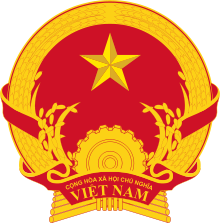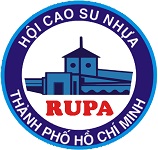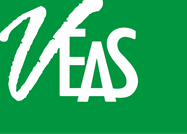
Over the years, China has been one of the largest importers of rubber scrap in the world, with billions of dollars imported. However, since January 1, 2018, China has officially issued a ban on imports of rubber scrap. This is an opportunity for Vietnamese businesses to expand their market share, improve profitability. However, that is also a huge challenge when Chinese enterprises can "flock" to Vietnam to invest and become a formidable "rival" of us. Hundreds of rubber manufacturers in Vietnam have been "seated" to look for ways to develop business effectively when China issued a ban on imports of rubber scrap.
Mr. Dang Ngoc Quoc, a representative of a rubber manufacturer, said in the meeting about China that the strength of rubber enterprises in Vietnam is that many ports are convenient for importing raw materials from abroad.
The technology and experience of domestic enterprises are not inferior to Chinese enterprises, rubber-products of Vietnam are exported all over the world. Economic and policy forces are still very good for business development.
However, Mr. Quoc also said that the weakness of the main business is small scale production, discrete, not concentrated. The skills of workers are not high. Businesses do not have much export experience, international transactions and do not have the habit of sharing information with each other. "Domestic enterprises still have the habit of competing on price, dumping to compete internally. In addition, businesses do not have clear directions and strategies to compete with businesses in Southeast Asia and internationally, "Quoc said.
China's import of scrap will cause it to import rubber resins to make rubber.
According to statistics, each year China imported about 7.3 million tons of rubber grain, worth billions of dollars. This opens a huge "market" for exports to China. This is the time of "gold" to the rubber business of Vietnam to expand production capacity.
In addition, when European countries are blocked from selling scrap to China, Vietnamese businesses have more opportunities to cooperate with European businesses.
However, experts also said that although the opportunities are great, the challenge is not small because the risk of a fierce price competition between rubber products among domestic enterprises is very likely out. When China ceases to import rubber scrap, raw materials will have a huge opportunity to export to this "giant" market.
Many domestic firms are also concentrating on "gathering" commodities and investing all their resources to increase production capacity can also lead to the risk of default if China stops buying. In addition, the risk of turning Vietnam into a landfill, pollution is very easy to lose if control. In order to "respond" to the aforementioned issues, a large rubber enterprise in Vietnam has called for other rubber enterprises to participate in the rubber trading floor, the rubber trading market and the high tech rubber industry by this business organization.
The ideas are designed to improve competitiveness, professionalize production, "gather" the business in a way that foreign partners can easily find, cooperate when the need arises about rubber.
According to the big business, the rubber market will come into operation in February 2018 after the company negotiated with the China Rubber Association on January 19. As for the hi-tech rubber manufacturing area, it is being built on a 181 hectare site in Ba Ria - Vung Tau Province. Mr. Ho Duc Lam, President of Vietnam Rubber Association, said that the association strongly supports the development of a sustainable and professional way such as trading floor, rubber market or hi-tech rubber industry.
"Enterprises need to work together to support each other in the moment, so they can confidently and confidently enter the international markets," Lam said.
According to Tran Viet Anh, vice chairman of Ho Chi Minh City Business Association, Ho Chi Minh City is the "cradle" of the country's rubber industry, with 80% of the rubber industry. The rubber industry is growing rapidly and almost no more foreign products are in the country.
"We still have no control over the material. Oil exports but imports of rubber. Meanwhile, we have a very large oil reserves to produce a lot of rubber. Our production capacity is up to US $ 10 billion but exports only US $ 3 billion a year and imports US $ 6-7 billion, which is a huge difference, "said Viet Anh.
According to Mr. Viet Anh, scrap is the necessary creativity in finding materials to minimize the import of rubber. However, it is necessary to carefully select sources of scrap, to select clean scraps and quickly complete modern scrap recycling models to take the initiative in production and business.
For more information on machinery, equipment, technology and materials in the Rubber and Tyre industry in Vietnam, visit Rubber & Tyre Vietnam 2019, which is held annually from June 26th - 28th, 2019 at Saigon Exhibition and Convention Center (SECC), Ho Chi Minh.
Source: megavietnam.vn







